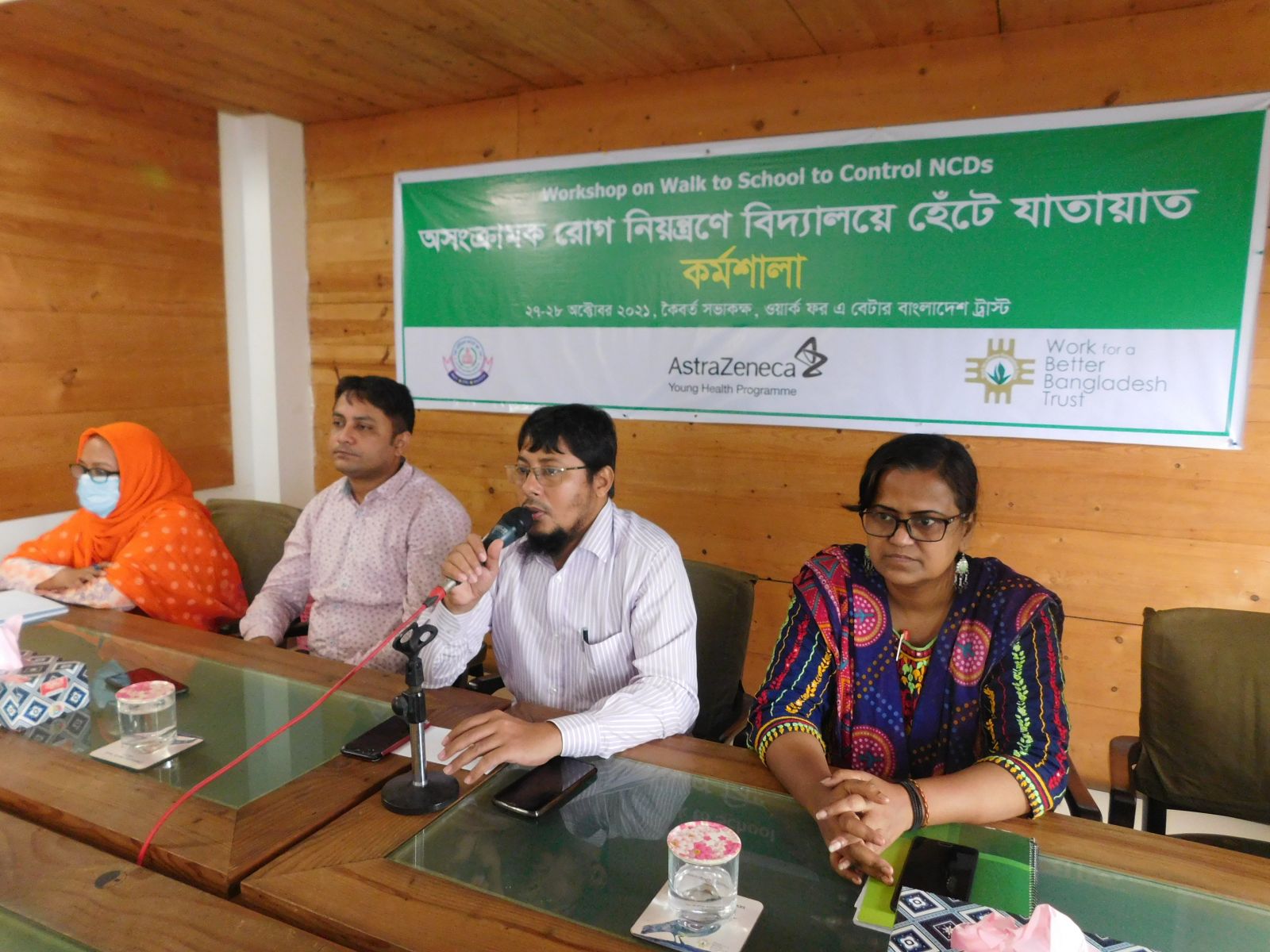
Bangladesh has had considerable success in preventing communicablediseases, but we are still lagging behind in overcoming non-communicable diseases (NCDs) identified as "silent killers" such as diabetes, heart disease and cancer. Non-communicable diseases accounted for about 67% of all deaths in Bangladesh. Lack of adequate play space and physical activity, dependence on vehicles, especially motorizedvehiclesinstead of walking, unhealthy diet and various environmental and behavioral factors are contributing to increase the incidence of NCDs which is putting future generations of the country at risk. It is very easy for students to meet the need of physical activity by walking to school and it will play a vital role to preventNCDs as well. Due tolack of quality walking environment, students face various problems while walking to school. If a safe walking environment is ensured for students, it will benefit people of all ages.
Dhaka Ideal Cadet School, AstraZeneca and Work for A Better Bangladesh Trust organized a workshop titled "Walk to School to Control Non-Communicable Diseases" with the participation of 50 students of Dhaka Ideal Cadet School on 27 and 28 October 2021 at 10 am and the speakers present at the workshop opined such.
SyedaAnonna Rahman, Program Manager of Work for a Better Bangladesh Trust said, unhealthy diet and lifestyle put us at risk of various diseases including cancer, heart disease and stroke. We need to get rid of these negative habits so that the risk of non-communicable diseases gradually decreases. At the same time, it is very important for therelevant stakeholders to take necessary steps to ensure safe walking environment andencourage the students to walk school regularly. A joint effort is needed to ensure that students can walk to school safely.
M.A. Mannan Monir, Headmaster of Dhaka Ideal Cadet School, said, "People are suffering from non-communicable diseases at present and our lack of awareness is a reason behind this." Addressing the students, he asked the students to discuss the messages they received from the workshop with their classmates, friends, family members and relatives. By this they will contribute to increase awareness among the public.
Naima Akhter, Project Officer of Work for a Better Bangladesh Trust, facilitated the workshop and said that, to stay healthy, we must exercise at least 1 hour regularly and avoid unhealthy diet. If we develop the habit of walking to school and in short distances every day, the demand for travel as well as the need for physical activity will be met. Walking helps to increase brain function and maintains good mental health and social harmony by creating opportunities for socialization.

